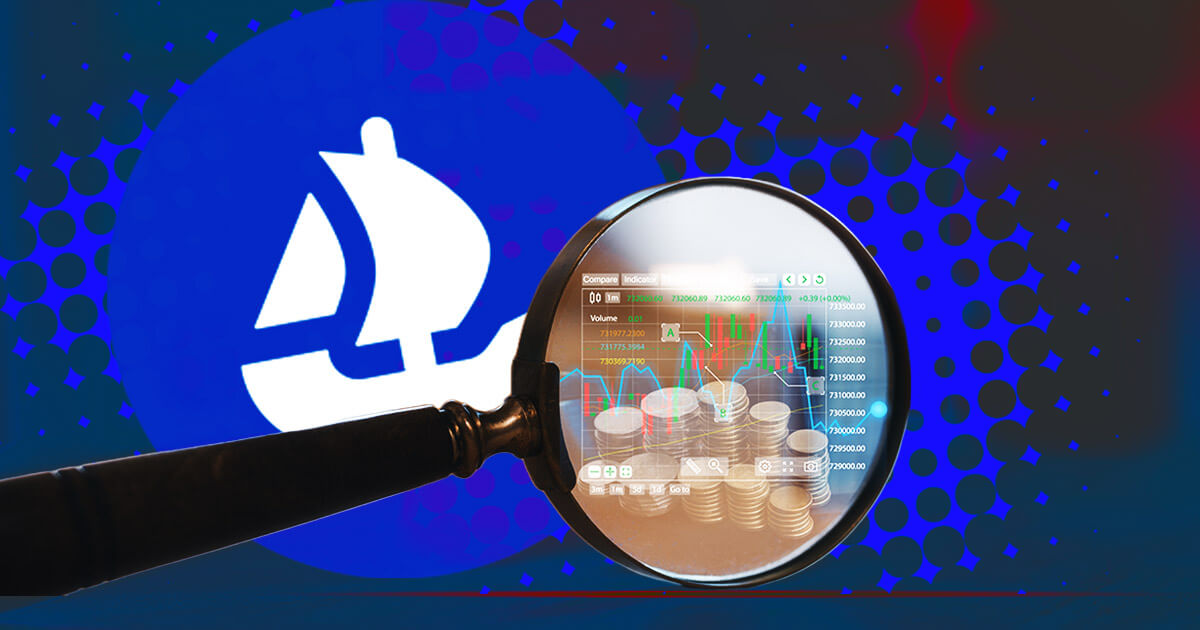
James Carter
First NFT Insider-Opensea Manager

Nathaniel Chastain, a former OpenSea product manager, was found guilty of wire theft and money laundering in the first trial for insider trading that used non-fungible tokens (NFTs). The trial was the first time that NFTs were used in a case like this.
First NFT Insider
According to a story by Bloomberg on Thursday, a federal court in Manhattan, New York, announced the verdict on Wednesday following a trial that lasted one week and two days of deliberations.
Chastain was accused of using confidential knowledge to gain thousands of dollars in profit by buying NFTs just before their listing on OpenSea’s site when their prices would quickly surge. This led to the accusation that Chastain engaged in unethical and illegal business practices.
Chastain would then sell the NFTs at a profit, in violation of his commitment to keeping the information confidential, once the prices had escalated.
The authorities said that Chastain’s illegal activities resulted in a profit of more than 57,000 dollars for him.
In contrast to the vast majority of classic instances involving insider trading, the prosecutors decided to charge Chastain with wire fraud rather than securities fraud. This was according to the fact that the United States government has not yet decided whether or not NFTs are legally considered to be securities.
Chastain had claimed in the past that non-fungible tokens (NFTs) are not securities or commodities and, as a result, are not susceptible to the theory proposed by the government. In addition to this, he claimed that he did not engage in the illegal practice of money laundering because all of the transactions took place on an open blockchain.
A group of more than 300 defense attorneys wrote a statement in support of Chastain’s request to throw out the indictment. In the letter, they stated that a determination that secret company information is the property would broaden how fraud is punished and “criminalize a broad swath of conduct.” Chastain’s attempt to have the indictment thrown out received support from both of these groups.
Prosecutors in the United States, on the other hand, fought back, pointing out that he used sensitive information for his own financial gain.
“Even though this case involved trades in new crypto assets, there was nothing particularly new about what he did—it was fraud,” said US Attorney Damian Williams in Manhattan.
Chastain Faces Up to 20 Years in Prison
On each of the two counts of wire fraud and money laundering, Chastain faces a possible combined term of up to 20 years in prison, although his sentence may be reduced.
United States District Judge Jesse Furman presided over the trial and decided that Chastain would receive his sentence on August 22.
“We respect the jury process,” one of Chastain’s lawyers, David Miller, said during the hearing. “We respectfully disagree with their choice, but we will think about all of our options.”
According to what has been stated, the possibility that Chastain was utilizing insider information to purchase NFTs was first brought to light in September 2021 by an anonymous message on Twitter.
After thereafter, OpenSea said that they learned one of their employees purchased things using confidential information without reporting that it was Chastain. The employee in question was not identified.

In June of the previous year, he was taken into custody.
Chastain was given the opportunity to work for OpenSea as the company’s product manager. In this role, Chastain was in charge of choosing the NFTs that would be highlighted on the company’s homepage.
The Department of Justice alleged that Chastain used sensitive information obtained from OpenSea between June 2021 and September 2021 to make unauthorized purchases of “dozens of NFTs” shortly before they were highlighted on the homepage and then quickly sell them “at profits of two- to five times.”
Latest
News
19 Apr 2024
News
16 Jan 2024
News
31 Aug 2023
News
24 Jun 2023













